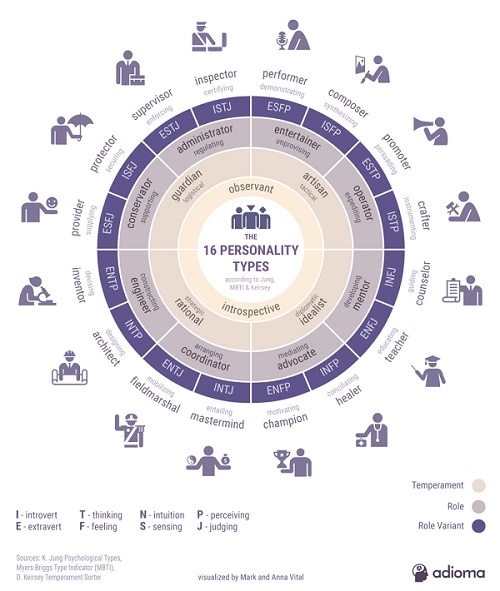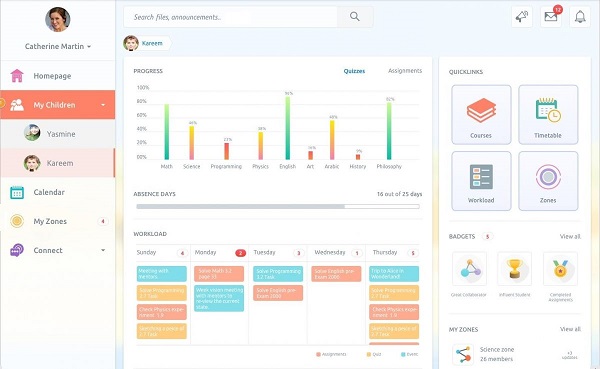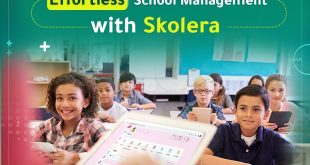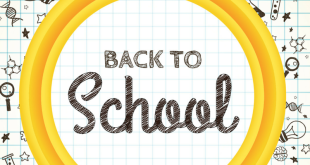Learning management systems (LMS), digital software management systems, are designed specifically to serve the educational system from A to Z.
They have appeared in our lives as means to link between traditional education system and students whose lives revolve around computers and technology.
Therefore, using learning management systems is a proven guarantee you will be able to motivate your students.
Table of Contents
1. LMS and Student Motivation Answer
Worldwide cinema has captured and repeated a scene in many movies in which a mother asks her child “What did you learn today?” The answer is usually “nothing,” reflecting a fundamental issue in education system.
This is mainly because the child does not remember much of what they took in class. And if they do remember, they find it not that interesting. This could be purely due to lack of motivation and interest in what happens in class.
Get started Skolera for FREE

Fortunately, LMS in school is the new black. Every day, more and more schools are applying learning management systems (LMS), taking advantage of the available designed tools. Through them, they are able to further widen the function of technology for school students, instead of students usually using it outside of class and learning.
Moreover, according to research, a child always desires to differentiate themselves from others, show their personality, and express their opinion. These are the objectives learning management system helps you reach.

This is done by providing them with their private interface from which they can do their assignments, send them, check their lessons, contact their peers and teachers whenever and wherever, and express themselves through various other tools).
By fulfilling these needs and using LMS various designed tools, you will be able to motivate your students and help them find something to look forward to in learning, a connection, in a safe learning environment.
Plus, their chances of growing up to be successful as well as self-fulfilled increase by a long shot.
If you haven’t tried Skolera LMS for free yet, register from here.
2. How LMS Is Connected to Motivation and Personality
Student motivation has been a frustrating issue teachers and educators have struggled for hundreds of years to handle, a challenge which LMS has finally resolved.
Every student has their own personality and traits. According to Palminek (2010), our individual characteristics, differences, and external factors are all elements in a process through which you could determine how to motivate your students in any situation.

Therefore, many school management system providers, one of which is Skolera, have sought, through many tools, to help teachers understand each student.
Using the LMS you can apply a variety of teaching strategies to figure out what motivates them, what could trigger the required response from them, and what piques their interest the most and how to do it throughout the school year (we have discussed motivational strategies in “Top 8 Motivational Strategies for Students that Work!).
Try Skolera LMS for free by submitting your information here.
3. LMS in Myers–Briggs Type Indicator
According to Myers–Briggs personality type theory, a Personality Type Indicator meant to recognize one’s personality, difference, strength, and preferences, there are 16 different kinds of personalities, each one affecting learning and teaching styles.
For example, students with ISTP personality (Introverted, Sensing, Thinking, and Perceiving), innovative crafters or virtuosos, may find LMS extremely advantageous, since they are usually reserved, practical, adventure-seekers, and quiet thinkers who would not bear the restrictions of traditional rote class learning.

Source: https://blog.adioma.com/16-personality-types/
Furthermore, having a clear time schedule and a calendar and a list of their achievements, in their interface in LMS, may help encourage them in relation to the idea of deadlines and the best way to work with them, when faced with them in their future life, since ISTPs are known to be easily bored and against deadlines; further, they might sometimes lose the sense of time.
Moreover, LMS provides ISTPs the opportunity to learn in an organized environment (interface), offering them the chance they seek to think outside the box while allowing them their much needed privacy at the same time.
Having more research on this type of personality in relation to LMS will definitely help technology in education.
Join Skolera Now for FREE
4. Recognizing Strength and Weakness Points through Skolera
“Seven in 10 teachers (69%) surveyed said educational technology allows them to “do much more than ever before” for their students,” according to BS Learning Media.
One of the best features in LMS is helping teachers and parents determine the student’s strength and weak points.
For example, in one of the best 20 learning management systems, Skolera, student’s school performance, progress, and achievements are recorded.
This allows the student a better learning experience and presenting teachers and parents with ways to detect strength points in order to improve them and work on weak points moving forward. (In “6 Strategies to Improve Student Achievement,” ways to improve students’ strength points are elaborated.)
Furthermore, one of the teachers who used Skolera said “The grade book was another interesting interactive tool, I wasn’t only adding marks, but I was also able to leave a feedback on each and every graded item.
Moreover, I was able to add an extra resource to my feedback for the student who was below target.”
5. Gamifying Education in LMS and Making Learning More Enjoyable
Before LMS, parents used to prohibit their children from playing games unless homework is finished. This is why children usually don’t like studying much; it keeps them from playing.
LMS has shed light on this point, since some intelligent students are shackled by rote traditional teaching. They sometimes are not interested in certain subjects or the way they are taught.
They are reluctant to study, and what others may see as negligence and misunderstanding from the student’s is actually lack of motivation.
Gamifying education unleashes these students imagination and thoughts, showing what they excel at. Now they are able to remain excited, giving you the tools to motivate your students, while ensuring they do their assignments and quizzes and check any extracurricular material uploaded by the teacher.
This could lead to a generation of great smart, capable, and strong members of society and leaders.

Image from Skolera learning management system, parent view
6. LMS: Extrinsic Motivation and ADHD
There are two types of motivation for learning: intrinsic and extrinsic. Intrinsic motivation, on the one hand, is when the student is already interested in learning, so his/her motivation comes from within. In this case, managing to motivate your students is a straightforward mission.
On the other hand, extrinsic motivation for students depends on other factors, such as rewards or recognition, encouraging them to participate in class. For example, Skolera offers badges and rewards in order to reinforce positivity and strengthen students’ desire for learning.

Students with ADHD students are brilliant, smart thinkers, with sometimes higher IQ and hyperactivity. They sometimes might need external motivational factors to stimulate their attention and focus on studying.
According to Dr. Sharone Saline’s book, What Your ADHD Child Wishes You Knew, “Incentives help kids with ADHD who struggle with motivation and starting things.” Hopefully, ADHD students might find using LMS beneficial. We look forward to further research on ADHD in relation to LMS.
Many households and teachers have struggled with students arriving late to class, not doing assignments or bringing them after deadline, and negative attitude, and these students were often called ‘misbehaving.’
However, these were all signs of lack of motivation. By applying LMS among schools, students lack of motivation will be resolved.
To follow up on the newest trends in education and learning management systems, check our blog on a regular basis. You can also know more about how to help your school through Skolera through our website.
Create Free Account
References:
- Six Reasons Why Students Are Unmotivated (and What Teachers Can Do), Jim Wright, National Association of School Psychologists, IN, 2011.
- The Relation between Motivation and Personality Types, Andrea Bencsik, Renata Machova, and Endre Hevesi, Medwell Journals, 2016.
- The Effects of Technology on Student Motivation and Engagement in Classroom-Based Learning, James Francis, 2017.
- https://education.gov.gy/web/index.php/teachers/tips-for-teaching/item/1489-how-to-motivate-students-in-the-classroom.
- https://www.pbs.org/about/blogs/news/pbs-survey-finds-teachers-are-embracing-digital-resources-to-propel-student-learning/.
- https://www.psychologyjunkie.com/2019/06/28/the-frustrated-versions-of-every-myers-briggs-personality-type/.
- What Your ADHD Child Wishes You Knew: Working Together to Empower Kids for Success in School and Life, Dr. Sharon Saline, 2018.
 Skolera LMS Blog Educational Technology Articles and News
Skolera LMS Blog Educational Technology Articles and News




